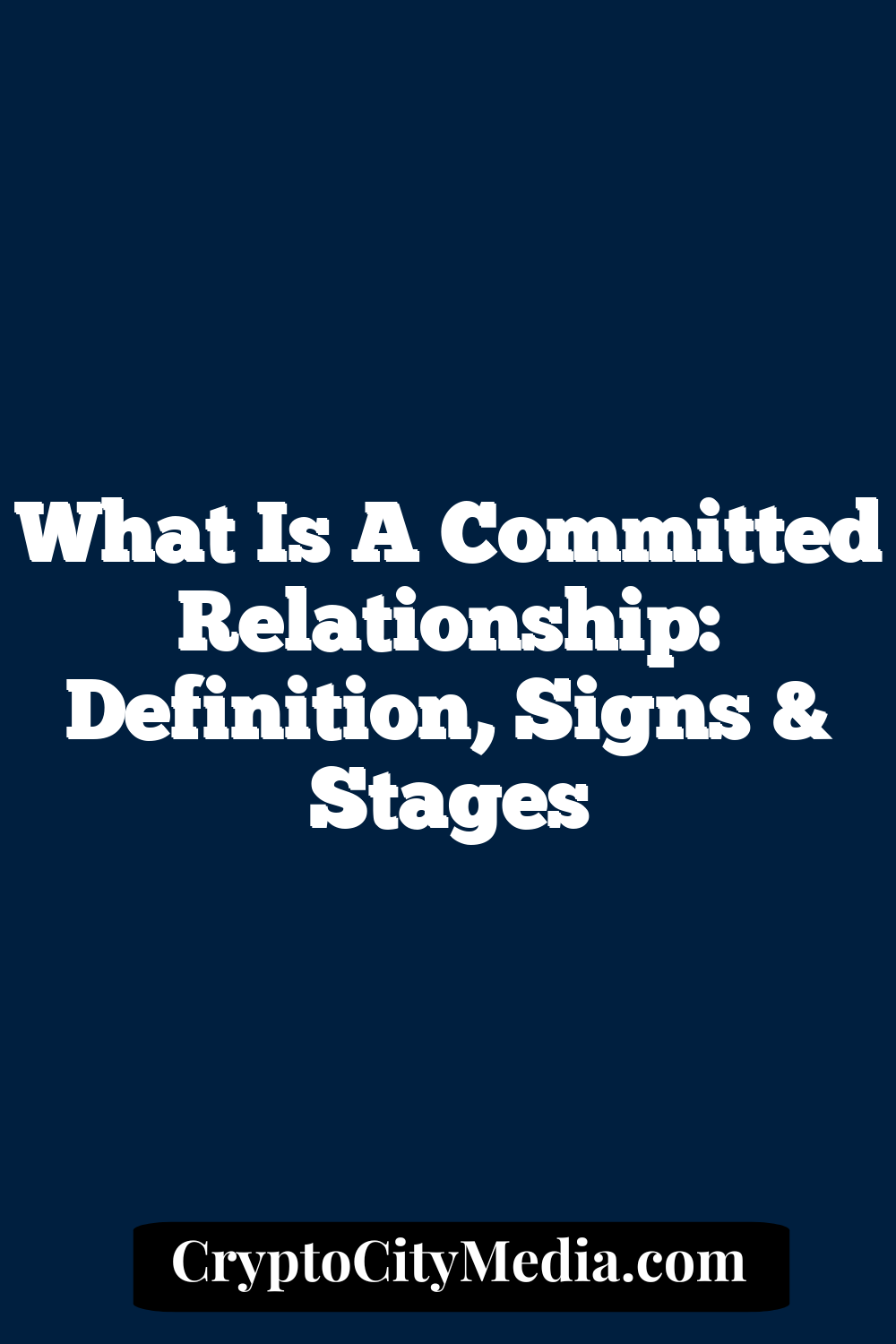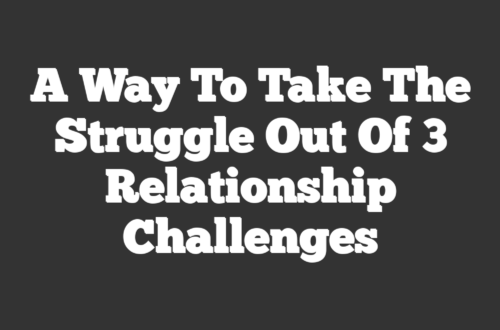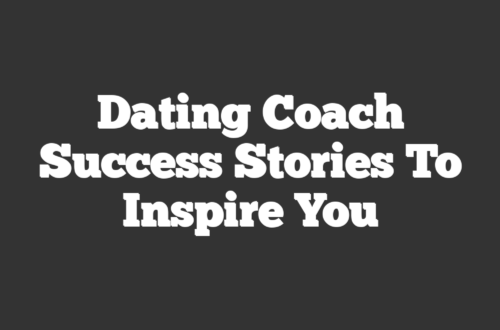
Do you ever marvel at those couples who seem perfectly in tune with each other, effortlessly navigating life’s rollercoaster together? Well, that’s what we call a committed relationship.
But what does it actually mean? Is it just about changing your relationship status on social media or binge-watching the same Netflix series together? It’s so much more than that!
A committed relationship is like a harmonious melody, a dance where both partners lead and follow in perfect rhythm. It’s about making a promise, a pact if you will, to stick by each other through sunshine and stormy weather. Sounds exciting, doesn’t it?
So let’s buckle up and explore more about this thrilling, heartwarming world of committed relationships.
Understanding a Committed Relationship
At its core, a committed relationship is a teamwork exercise. It’s two people deciding to face life’s ups and downs together. But what exactly does it mean to be in a committed relationship?
- Consistency: Committed relationships are like your favorite hoodie – reliable and comforting. They offer a consistent presence, someone who’s always there for you.
- Mutual Respect: This isn’t just about saying ‘please’ and ‘thank you.’ It’s about valuing each other’s thoughts, feelings, and choices, even when they differ from yours.
- Trust: It’s the bedrock of any committed relationship. Trust is about believing that your partner will always have your back.
- Open Communication: Whether sharing dreams or resolving disagreements, effective and honest communication keeps the relationship healthy and vibrant.
- Shared Goals: This is about envisioning a future together, aligning your ambitions, and working as a team to turn them into reality.
Understanding these elements can help you recognize and nurture a committed relationship.
Why Committed Relationships Matter
Committed relationships are your safe harbor. They provide the emotional anchor we all crave. In a world full of uncertainties, it’s the promise of a hand holding yours, a shoulder to lean on, and a cheerleader who believes in you, even when you might not.
They are the canvas for personal growth too! They challenge, refine, and help us become better versions of ourselves. And above all, committed relationships offer love — that warm, fuzzy feeling that makes our hearts flutter and our lives meaningful.
So you see, they’re not just about romantic dinners and long walks; they’re about sharing life, its joys, sorrows, and everything in between. And that’s why committed relationships matter. They bring color, warmth, and significance to our world.
And who wouldn’t want that, right?
10 Signs You’re in a Committed Relationship
Ever wondered if your relationship has reached the commitment zone? To help you solve this puzzle, here are clear signs you’re in a committed relationship.
1. You Spend Significant Time Together
When you’re in a committed relationship, you often find yourself spending a significant amount of time together. This means you choose to be around each other not just for special occasions or date nights but even for mundane daily activities.
You enjoy each other’s company, whether you’re out having fun or just chilling at home.
Practical Examples:
- You and your partner find joy in doing grocery shopping together, turning it into a regular couple’s activity.
- You’ve built a habit of preparing breakfast together every Sunday morning.
2. You Make Important Decisions as a Team
Making decisions as a team is a key part of a committed relationship. It means you consider your partner’s opinions and feelings before making choices, big or small. Whether it’s choosing what movie to watch or where to live, you involve each other in the decision-making process.
This teamwork shows you value your partner’s perspective and are committed to finding solutions that work for both of you. It helps you grow together as a team, respecting and considering each other’s wants and needs in all decisions.
Here are two helpful tips:
- Communicate openly: Don’t be afraid to voice your thoughts and feelings during decision-making. Honest communication is crucial.
- Be understanding and flexible: Compromise is key in making decisions as a team. Sometimes, you might have to meet in the middle to find a solution that suits both parties.
3. You’ve Met Each Other’s Family and Friends
Meeting each other’s family and friends is a big step that shows you’re in a committed relationship. It signifies that you’re serious about each other and ready to integrate into each other’s social circles.
This integration shows that you’re not just part of each other’s present but also planning to be part of each other’s future.
Being acquainted with your partner’s loved ones gives you a better understanding of your partner’s life and relationships outside of your relationship as well. This level of involvement and openness often comes when you’re truly committed to each other.
Example: You're invited to family gatherings or holidays, and your partner makes a point to introduce you to their close friends.
4. You Discuss Your Dreams and Future Plans Together
In committed relationships, you’re not afraid to talk about the future. This includes sharing your dreams, goals, and plans for the future. You’re interested in knowing where each of you sees yourselves in the coming years and how you can support each other in achieving these aspirations.
Tip: Make it a point to discuss your individual and shared goals on a regular basis. This will help keep your relationship strong and aligned.
5. You Have Open Communication About Your Relationship Status
Transparency is the cornerstone of a committed relationship. This means having open, honest conversations about where you both stand and where you see the relationship going.
You’re not afraid to discuss exclusivity and commitment, and you respect each other’s thoughts and feelings on these matters.
Related: How to Communicate Better in Your Relationship: 11 Effective Strategies
6. You Trust Each Other Deeply
Trust forms the bedrock of a committed relationship. You have faith in your partner’s actions and decisions and believe that they have your best interests at heart. This trust isn’t built overnight but grows over time as you get to know each other better.
“Trust is the fruit of a relationship in which you know you are loved.”
– William Paul Young
7. You Feel Respected and Valued
In a committed relationship, your partner acknowledges your worth and respects your decisions. They see you for who you are and value your thoughts, feelings, and choices. This feeling of being cherished and valued is one of the strongest indicators of commitment.
Tip: Practice active listening. Make sure your partner feels heard and understood.
8. You Handle Conflicts in a Healthy and Constructive Way
Disagreements are part of any relationship. However, in a committed relationship, conflicts are handled in a way that promotes growth and understanding rather than resentment.
You’re willing to listen, compromise, and find a solution together.
When you fight fair, you avoid saying things that are hurtful just to “win” the argument. Instead, you express your feelings and thoughts clearly and calmly, and most importantly, you listen to your partner’s perspective.
Imagine you’re upset because your partner forgot to do the dishes, a task they agreed to handle. Instead of lashing out and blaming them, you might say,
“I felt overlooked when the dishes weren’t done. I was depending on you to handle that. Can we figure out a way to ensure this doesn’t happen again?”
This type of communication focuses on your feelings and proposes a solution instead of casting blame.
9. You Support Each Other During Good Times and Bad
Supporting each other through all the ups and downs is a clear sign that you’re in a committed relationship. This means you’re there to share in your partner’s joy during good times, celebrating their victories, big and small.
But perhaps more importantly, you’re also there for them during the bad times. When they’re going through a rough patch, you’re their shoulder to lean on, offering comfort, understanding, and a helping hand if needed.
Practical tips:
- Show empathy: Whenever your partner is going through a tough time, put yourself in their shoes. Try to understand how they’re feeling and offer emotional support.
- Celebrate achievements: When your partner accomplishes something, no matter how small, celebrate it. Make them feel appreciated and valued for their efforts. This can be as simple as a heartfelt compliment or a surprise dinner to honor their achievement.
10. You’re Honest and Straightforward with Each Other
This means you feel safe to speak your truth, express your feelings, and share your thoughts without fearing judgment or misunderstanding.
In a committed relationship, there’s no need for pretenses or games. You both know and appreciate each other for who you truly are, flaws and all. And this level of honesty extends to all areas of your relationship, from your feelings about each other to your opinions on important matters.
For instance, if something’s been bothering you, you don’t keep it to yourself or pretend it’s not a big deal. Instead, you bring it up with your partner in a respectful and constructive manner.
You might say,
“I’ve been feeling a bit neglected when you spend so much time at work. Can we find a way to spend more quality time together?”
This straightforward approach helps to prevent misunderstandings and resentment from building up.
But remember, being honest doesn’t mean being harsh or tactless. It’s always important to express your honesty with kindness and respect, considering your partner’s feelings.
The Stages of a Committed Relationship
Relationships are journeys, and like any journey, they comprise phases. As a relationship deepens, it typically moves through these five stages:
The Exciting Honeymoon Phase
This stage is like the dawn of a new day, filled with anticipation, mystery, and excitement. Everything about your partner seems flawless, from their infectious laughter to their unique quirks.
You might find yourself:
- Spending almost every free moment together.
- Engaging in frequent romantic gestures, like flowers, little love notes, or surprise date nights.
- Rarely disagree or have conflicts as you’re both showcasing your best selves.
In this stage, you’re essentially exploring new territories of emotions and connections.
The Tug-of-Power Phase
In this stage, you may start finding stones in your once-smooth pathway. The perfect partner image fades a bit, and you start seeing your partner for who they are, warts and all. It could look like:
- Rebelling against some of their habits or attitudes that seem less charming now.
- Having more disagreements or conflicts.
- Getting frustrated when your partner doesn’t meet your expectations.
While it might seem rough, this stage is about discovering deeper layers of each other’s personalities and adjusting expectations.
The Comfortable Stability Phase
Here, the relationship feels like a calm sea after a storm. You learn to accept your partner’s real self, coming to terms with their strengths and weaknesses. This phase could involve:
- Sharing more comfortable silences together.
- Developing a routine that involves both your lives.
- Having fewer conflicts, as you now understand each other better.
Understanding and acceptance flourish in this phase, strengthening the relationship’s foundation.
The Deepening Commitment Phase
In this phase, your relationship may feel like a plant that has found its root—it’s stable and ready to grow. You’ll realize that regardless of the differences and conflicts, you want to be with them.
It could look like:
- Discussing long-term life plans and responsibilities, like moving in together or engagement.
- Recovering from conflicts quicker and in healthier ways.
- Reducing the role of external factors in your relationship.
This stage deepens the bond, fostering loyalty and reassurance.
The Blissful Co-Creation Phase
This stage is like reaching a mountain peak with your partner after a long hike. The journey shaped you both, and now you can delight in a stimulating view together. At this stage, you might:
- Plan and work on a significant project like starting a family, buying a home, or starting a business.
- Have a deeper understanding and acceptance of each other.
- Developing a shared perspective towards life and its challenges.
In this phase, couples work towards achieving shared dreams and goals, reinforcing their bond with mutual achievements.
How to Know If You’re Ready for a Committed Relationship
Making the transition from casual dating to a committed relationship is a big step. It requires readiness both emotionally and situationally. Here’s how to know if you’re ready to take that plunge:
1. Your past relationships have taught you significant lessons: Past relationships, even the ones that didn't end well, can provide valuable insights. If you've learned from your past experiences and used them to grow, it shows that you're prepared for a committed relationship.
2. You’re in a stable phase of your life: A committed relationship requires a certain level of stability. This can mean different things for different people - a stable job, a stable emotional state, or a stable living situation. If you're in a stable phase of your life, it's a good sign that you're ready for a committed relationship.
3. You can envision a future with your partner: Thinking about the future is a good indicator of your readiness for a long-term relationship. If you can imagine a future with your partner and feel excited about it, you're likely ready for a committed relationship.
4. You feel a powerful emotional bond with your partner: Emotional connection is key in a committed relationship. If you share a deep emotional bond with your partner, one that goes beyond just physical attraction, it's a strong sign that you're ready for a more serious relationship.
5. You’re more focused on giving than receiving: In a committed relationship, it's not all about what you can get. Instead, it's about what you can give and how you can contribute to the relationship. If you find yourself more focused on giving love, care, and support, rather than just receiving, it's a good sign you're ready for commitment.
Remember, readiness for a committed relationship varies from person to person. It’s important to listen to your own feelings and move at a pace that feels comfortable for you. After all, a solid relationship is built on mutual readiness and shared commitment.
How to Build a Healthy Committed Relationship
Building a healthy, committed relationship takes effort, understanding, and patience. Below are some key aspects to focus on and some examples of how you can incorporate these aspects into your relationship.
| Prioritizing Good Communication | It involves openly discussing feelings, desires, and concerns and actively listening to your partner. | If you’re feeling overwhelmed at work, instead of bottling it up, share your feelings with your partner. Ask for their perspective or simply for their understanding. |
| Fostering Emotional and Physical Closeness | If you’re feeling overwhelmed at work, instead of bottling it up, share your feelings with your partner. Ask for their perspective or simply for their understanding. | This can be as simple as cooking a meal together or more complex as training for a marathon as a pair. |
| Engaging in Shared Activities | Shared activities help in building mutual interests and creating fun memories together. | This can be as simple as cooking a meal together or more complex like training for a marathon as a pair. |
| Solving Problems Together | Working together to solve problems, rather than blaming each other, helps in building a sense of partnership and mutual respect. | If you disagree about how to spend your holidays, instead of arguing, sit down and find a compromise that satisfies both. |
| Aligning Beliefs and Values | Emotional and physical closeness creates a bond that goes beyond the surface. It’s about understanding each other deeply and expressing love both emotionally and physically. | These can create a strong foundation for your relationship. Discussing these can ensure you’re both aiming for the same things in life. |
Every relationship is unique. What works for one couple might not work for another. The key is to find what works best for you and your partner and to always be willing to grow and evolve together.
Challenges in A Committed Relationship and How to Solve Them
All relationships face hurdles. Let’s look at a few common ones and how to navigate them:
Overcoming Communication Hurdles
A common dilemma in many relationships is miscommunication. For instance, your partner may interpret your words differently than you intended, leading to unnecessary conflicts.
Ways to solve it:
- Practice active listening: Ensure you fully understand what your partner is saying before responding.
- Be clear and concise: Avoid ambiguity, and state your feelings and expectations clearly.
Dealing with the Pain of Infidelity
Infidelity is a massive challenge that can shake the foundations of commitment. The injury of broken trust is profound and difficult to overcome.
Ways to solve it:
- Seek professional help: Therapists can guide couples through the healing process and help rebuild trust.
- Open communication: Speak openly about the incident and feelings associated with it.
Balancing Different Life Goals or Values
Sometimes, partners may find their life goals or values misaligned, causing friction as they look to the future.
Ways to solve it:
- Build a shared vision: Find mutual goals or dreams that you can work toward together.
- Compromise and adapt: Learn how to meet halfway with respect to each other’s differences.
Managing Financial Disagreements
Money-related issues are among the top reasons for conflicts in relationships. Ways to solve it:
- Financial planning: Create a budget or a financial plan that suits both partners.
- Open dialogues: Discuss financial issues and decisions openly and honestly.
Surviving the Test of Distance
Sometimes, circumstances lead to long-distance relationships. Maintaining a connection from afar can be challenging.
Ways to solve it:
- Regular communication: Use technology to communicate regularly, sharing your daily lives.
- Plan visits: Make plans to meet up whenever possible, giving you both something to look forward to.
How To Nurture a Committed Relationship
Nurturing a committed relationship takes consistent effort and care. Here are some key ways you can nourish and grow your connection:
- Having Regular Heart-to-Hearts: Open, sincere conversations can strengthen the bond between you. These chats, whether about your day, your dreams, or your worries, allow you both to better understand each other.
- Making Quality Time Together a Priority: Spending quality time together is crucial. This means a time when you both are present and engaged with each other, free from distractions. It can be as simple as having a meal together or going for a walk.
- Upholding Healthy Boundaries: Boundaries are important in any relationship. They help ensure respect and understanding and allow both partners to feel comfortable and safe. This could mean setting aside time for individual activities or agreeing on how to handle disagreements.
- Seeking Professional Help When Needed (Counseling, Therapy): It’s okay to ask for help. If you’re facing challenges that you find difficult to overcome, professional help like counseling or therapy can provide useful guidance and support.
- Learning, Growing, and Evolving Together: In a committed relationship, both partners should be willing to learn and grow together. This could mean picking up a new hobby together or learning to navigate life’s ups and downs as a team.
Remember, nurturing a relationship is an ongoing process. Patience, understanding, and love are key to building and maintaining a strong and healthy connection.
Frequently Asked Questions
Are committed relationships always romantic in nature?
No, committed relationships may not necessarily be romantic. While romantic relationships typically involve commitment, people can also exhibit commitment in friendships, family relationships, and work ties.
It depends on the intensity of the bond, mutual respect, shared goals, and dedication to maintaining the relationship.
How is a committed relationship different from casual dating?
A key difference lies in the intention and depth of the relationship.
In casual dating, individuals might:
1. Not have explicit intentions for a long-term bond.
2. Avoid deep emotional engagement.
3. Preserve their options open for other potential partners.
In a committed relationship, individuals typically:
1. Aim for a lasting, deep bond.
2. Engage emotionally, dedicating time and effort to foster the relationship.
3. Seek exclusivity and loyalty.
Conclusion
So, that’s the wonderful journey of a committed relationship. It’s like a beautifully penned story where both partners are authors, writing chapters of understanding, respect, trust, and love. Yes, there might be some rainy days, but remember, every drop can only make the relationship tree grow stronger.
As you navigate your own love story, remember that commitment means being a teammate who plays for ‘us’, not just ‘I.’ Enjoy the journey because, in a committed relationship, it’s all about growing together, one shared heartbeat at a time.




